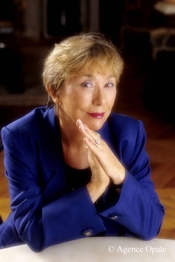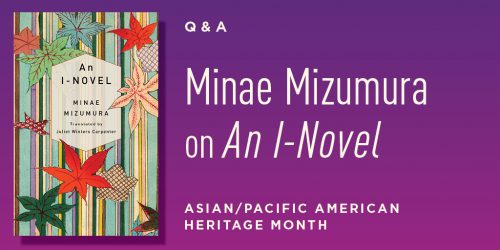An August Cemetery and the Ridiculous Task of the Translator By Maria Vassileva

Maria Stepanova’s essay “Over Venerable Graves” is the very last text in our volume The Voice Over, but it opens the collection in which it was first published in Russian.[i] Its first paragraph serves as the cover image of that book, set in blue against an orange background—“Here’s what happened,” Stepanova says—though the cover excludes the title and thus hides the silhouette of Pushkin (waiting in the wings to lead us to a country cemetery, where an oak tree rustles over the venerable graves of the dearly departed; better leave him out lest he distract the reader). She describes a grave oversight: she used a picture-perfect winter landscape as a “Happy New Year” postcard before noticing the outline of a cemetery underneath all the snow. And then, following the darting logic of literary association and the geography of metaphor, the essay alights on a different cemetery, one that the author would gladly pick as the departure point for the next leg of the journey: the Cimitero Acattolico in Rome.
For each translation I’ve worked on, the effort of piecing together the easy parts and the difficult parts of a text has led me to some question that could only be resolved by closing my laptop and doing something that feels, at the time, slightly ridiculous. Here, the problem was that we tried to “fact check” the inscriptions in the coda of the essay using an online database of all the gravestones at the Cimitero, and we found discrepancies, a couple of questionable vowels—enough to nag at my conscience.
So the very easy, very ridiculous solution was to walk over and find those graves.
By the time we noticed them, I was too tired to think or read. I had just turned in a draft of my dissertation and was burying my feelings under trapizzini and negronis—in Testaccio, Rome, which I’d chosen for its proximity to said conical pizza pockets but which also happens to be right next to the Cimitero and its comical pyramid. So the very easy, very ridiculous solution was to walk over and find those graves.
Here’s what happened. It was the first week of August and the weather was stupefyingly hot. I got to the cemetery, where the afternoon microclimate was even worse—the caretakers were watering the greenery and the stones were sweating hard. The cemetery cats hid in the shade, a tour guide led a listless group to Keats’s grave. I walked around looking for one Robert Brown, who had slipped and died “coming out of Neptune’s Grotto” in Tivoli. (The phrase “Neptune’s Grotto” pops into my head unprompted at least once a month and I greet it with joy.) Most of the stones in the cemetery are worn out from age or just to ward off the curiosity of the endless stream of tourists, and I couldn’t find poor Robert.
I didn’t want to involve any other living people in this ridiculous quest, but I had no choice.
I didn’t want to involve any other living people in this ridiculous quest, but I had no choice. I cursed the task of the translator and went to the main office of the cemetery, which was blissfully air-conditioned (I praised the task of the translator) and contained one lovely gentleman, white-haired in a snazzy white linen suit. He was eager to help. He tried the office computer first, but couldn’t log in; some IT guy had set up a new username and password, so the digital archive was entirely useless to its keeper. Then he pulled out a handwritten ledger, leafed through its wide pages, squinted at the cursive, and found him: Robert Brown, row X, grave Y. (I wish I’d kept the piece of paper he wrote it on.) And so I walked back out into the damp heat and there he was, the Virtuous and Amiable Youth, suddenly snatched away in the bloom of Health. The online database had gotten the spelling wrong. The stone had been spellchecked correctly back in 1823. I went back to my room, drank cold water until I could get my bearings, emailed the editor (Irina Shevelenko, who wrote about putting together the volume) and closed all the browser tabs I’d kept open for this draft.
Don’t believe everything you read on the internet.
[i] Odin, ne odin, ne ia / Alone, not alone, not me.
Maria Vassileva has published two books of poetry in Bulgarian. She is the co-editor, alongside Ainsley Morse and Maya Vinokour, of a translated collection of Linor Goralik’s stories and poetry titled Found Life: Poems, Stories, Comics, a Play, and an Interview, and she translated seven essays for the volume The Voice Over: Poems and Essays, a compilation of works by Maria Stepanova.








